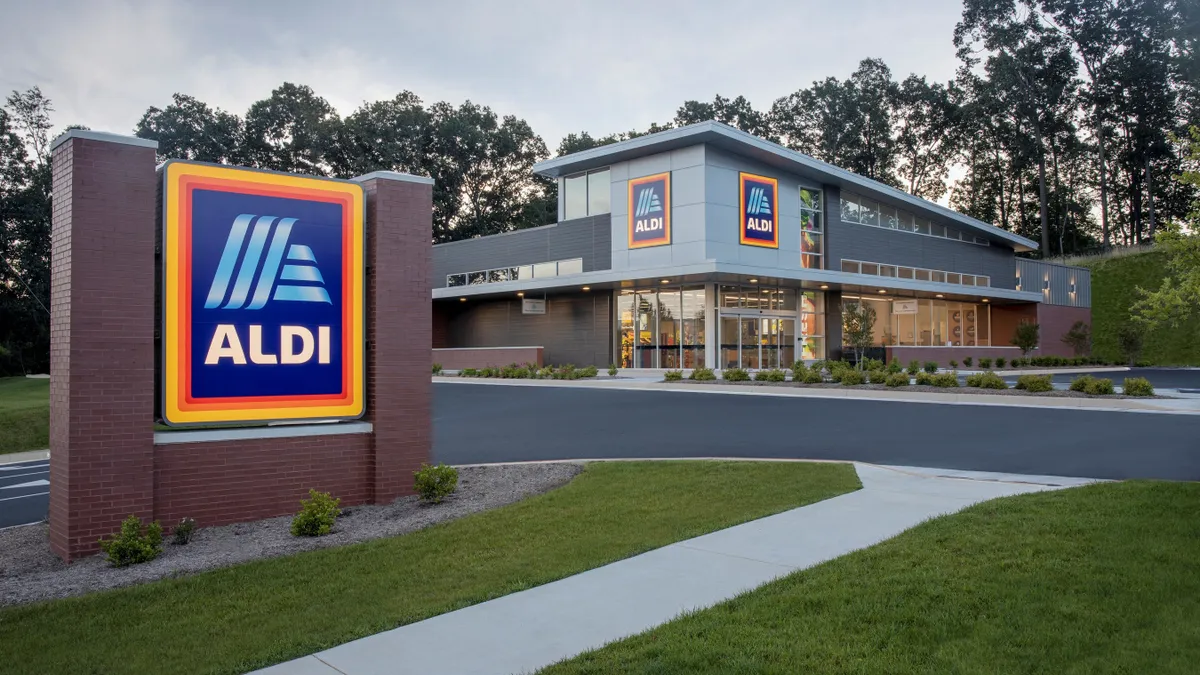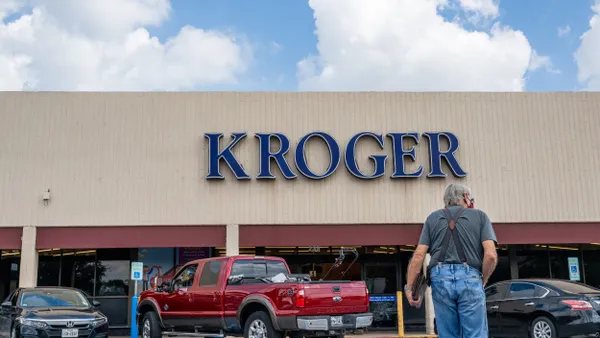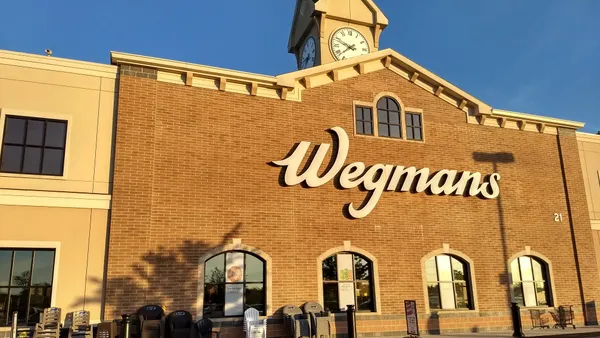Dive Brief:
- Aldi plans to open 100 new stores this year, with a focus on Arizona, California, Florida and the Northeast region, according to a company press release.
- The hard discounter is adding curbside pickup to 500 additional stores, bringing the number of stores where it offers the service to 1,200 by the end of this year. It also broke ground Wednesday on a new distribution center and regional headquarters in Loxley, Alabama, that will drive the company’s expansion in the Gulf Coast, including Louisiana, its 38th state.
- Although the pandemic has boosted rival supermarkets’ fortunes, Aldi remains undeterred in its drive to become one of the most popular grocery destinations in the U.S.
Dive Insight:
Aldi is picking up the pace of expansion following a highly disruptive 2020, when it opened 70 new stores. The company, which crossed the 2,000 store mark last year, says it’s still on track to become the third-largest grocer in the U.S. behind Kroger and Albertsons by the end of 2022.
The German-owned hard discounter has pushed into Arizona and bolstered its presence in highly competitive markets like Long Island as macroeconomic trends favor its low prices and upmarket positioning. Aldi will open its fourth Arizona location Feb. 15 and has numerous other locations planned throughout the state. In Florida, it has more than 160 locations and aims to continue targeting the state's fast-growing metro areas.
Another driving force for expansion will be Aldi's new 564,000-square-foot distribution center and regional headquarters in Alabama, its 26th in the U.S. and 6th in the Southern U.S., which it announced last summer. The facility will service up to 100 stores in Alabama, Southern Georgia, Mississippi and the Florida Panhandle. Aldi plans to open 35 new Gulf Coast stores by the end of 2022, beginning with two locations in Tallahassee, Florida, slated to open later this year.
The company did not provide a timeline for its move into Louisiana, which would bring it into closer competition with state favorite Rouses. Local reports have linked Aldi to real estate purchases in New Orleans, Baton Rouge and Lafayette.
Coinciding with its rapid store expansion has been an equally ambitious remodeling campaign that’s streamlining store layouts, refreshing signage and adding more fresh, organic offerings. Aldi is also experimenting with new store formats, like a 15,000-square-foot location that recently opened in a Philadelphia mixed-use development.
Aldi is also fully embracing e-commerce, with curbside pickup now coming to more than half of its stores and same-day delivery offered across its footprint. These are primarily defensive moves for the ultra-efficient hard discounter, but Aldi was an early mover in enabling online payment for Supplemental Nutrition Assistance Program (SNAP) customers, which it announced late last year and is now available from more than 1,700 stores.
Aldi, along with fellow discounters Lidl and Grocery Outlet, is focused on luring shoppers away from conventional grocers. But the pandemic has boosted the popularity of those large stores and the one-stop shopping they provide, potentially flattening the upward trajectory of these low-price, small-store rivals.
Research indicates cooling enthusiasm for supermarkets, however. At the same time, the rise in online shopping threatens to further refashion a fast-evolving U.S. grocery ecosystem.













